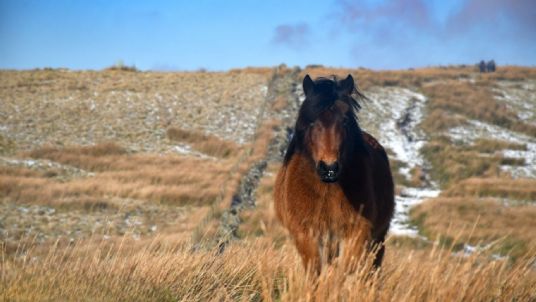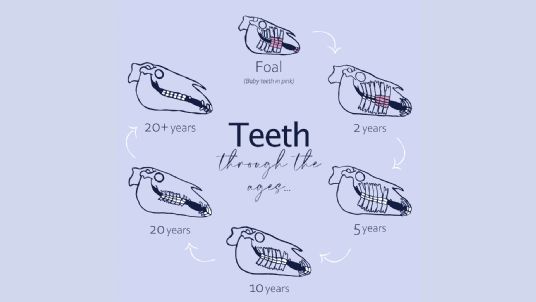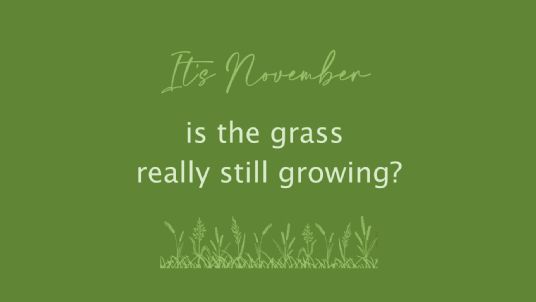New Product: Summer Salt - Horse Feed of the Month - August 2014
12 August 2014
We all know that horses need salt and that should have a salt lick at all times, but do we always understand why salt is so important?
Horses are unusual in the animal kingdom for sweating – it is one of the few traits we share with them! But unlike us, their sweat is hypertonic, which means it is saltier than their blood. When a horse sweats, salt is being lost as well as fluids. The sweat is drawn from the blood, so the more the horse sweats, the thicker and stickier the blood and the less salt it has in it. If we offer the horse water, this is quickly absorbed into the blood stream, but due to the lost salt, the blood will be too watery. The level of salt in the blood is crucial.
Salts in the blood are often referred to as electrolytes. The main ones are sodium (found in salt such as rock salt), potassium, which is present in large amounts in forages, calcium and magnesium, which are also found in forages and especially in lucerne. Beet pulp and seaweed are also good sources. Horses on forage based diets usually only need the sodium replaced as the diet provides plenty of the other electrolytes.
So, following drinking plain water, a horse who has sweated freely will be temporarily re-hydrated, but as the blood now lacks sufficient salts, water will soon be excreted through the kidneys to restore the correct electrolyte balance in the blood. Unless salts are replaced as well, the fluids offered will not fix the problem!
It is vital that electrolytes are offered with water. Offering them as, for instance, a paste without water will risk increasing dehydration. A tired or thirsty horse cannot be relied upon to drink sufficiently. If the necessary salt is offered in the drinking water, then there is far less risk – the horse is taking on the vital salts as well as the all-important water. Many horses prefer salted water and will choose it when they need it. Consumption can also be encouraged by taking the chill off the water.
At home, horses can usually consume sufficient salt by using their salt lick, but in harder work and especially when travelling and competing, it is not practical to take salt licks and the horse will require more salt and quicker in order to maintain a good performance. Adding salt such as rock salt, which also has other minerals in it, to the drinking water, is an efficient and safe way to help maintain hydration. Always offer plain water as well.
Never under-estimate the effect travelling has on hydration. Even if the horse is not visibly sweating, there is loss of fluids and salts. Many horses do not drink well when travelling and although hay may be offered, this is dry and will increase dehydration. Ideally, long journeys should include breaks every two hours to feed the horse a well-dampened or soaked forage feed, to offer water and allow a brief respite from the motion of travel. Such a system will also help reduce the risk of ulcers and colic.
You can encourage a sweaty horse to drink by allowing it to eat. A few minutes grazing or eating a feed of well dampened or ideally, soaked, Simple System forage feed, will often stimulate the horse into taking a good drink. Holding the bucket a foot or two above the ground can also encourage drinking. Keep calm around the horse and encourage the horse to be calm as well. Do what is necessary to cool him if he is hot but also protect him from getting chilled. Gentle walking can help. Monitor the horse closely until all signs of dehydration are over and do not commence any journey until he is well rested and re-hydrated.
You can monitor hydration by pinching a fold of skin on the shoulder. It should immediately spring back when released. (Pinch test). If the fold remains after 1 second, the horse may have some level of dehydration. Pressure on the gums when released should result in a swift return of colour. (Capillary refill). If your horse is not responding to your care, consult a vet.
Introducing Summer Salt
With our new product, Summer Salt, we have found a really excellent source of pure rock salt in Europe. This has not made long cross-continental journeys, so fits with our ethos of providing quality nutrition with the least impact on the planet. Where ever we can, we keep our “food miles” to a minimum. We’ve packed this granular salt in re-fillable, sturdy, screw top pots that will withstand their own journeys in your horse box. There is a handy measure to ensure accurate use.
Summer Salt can actually be used all year, but the warmer months are when you will use it most! Keep a pot in the wagon and another at home so you can be confident you are always able to ensure you are doing all you can to maintain vital hydration.
You may also be interested in:
Pure Ocean Seaweed. We use a single species, with lower iodine levels than kelps. Nature’s own mineral and trace element source. Seek advice before feeding to in foal mares.
Salt Lick Tub. 10 kg of Cheshire salt in a re-usable flexible skip, ideal for paddock use or stables.



